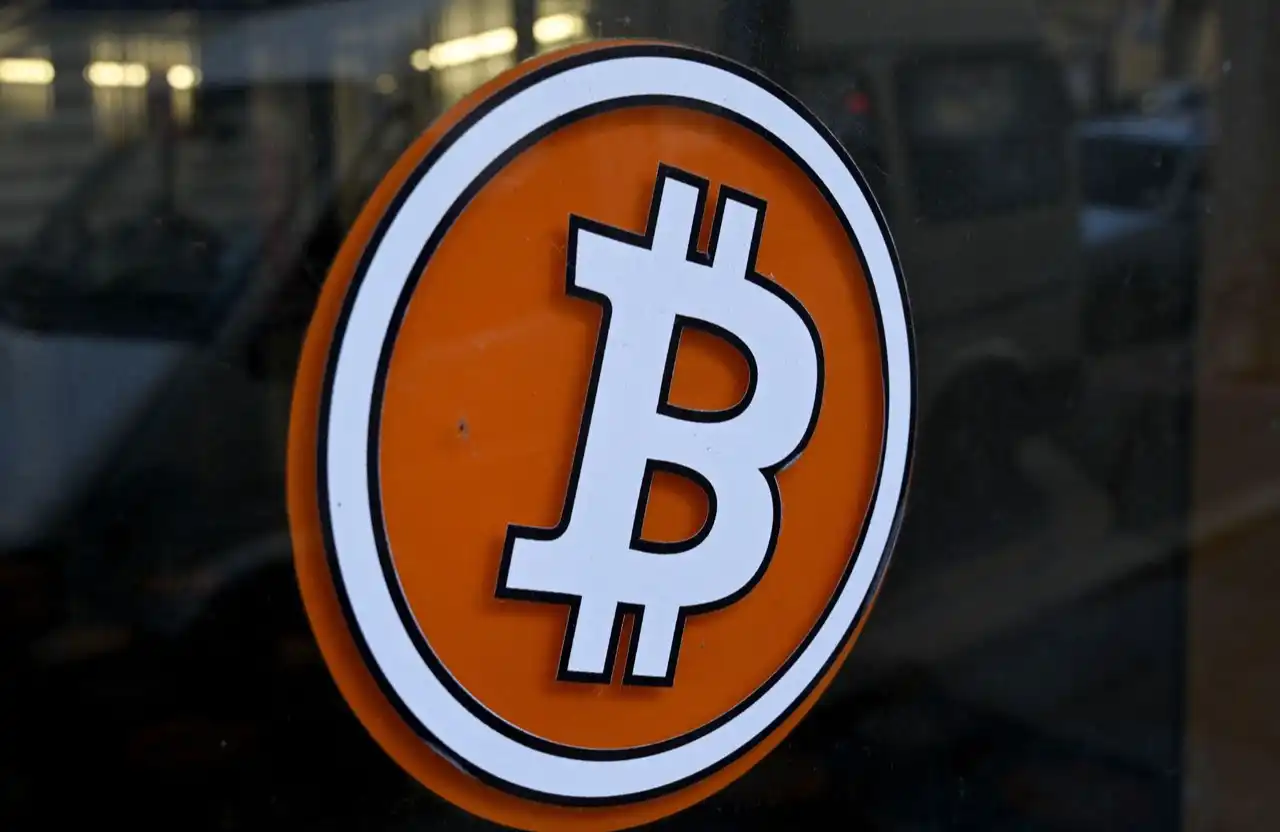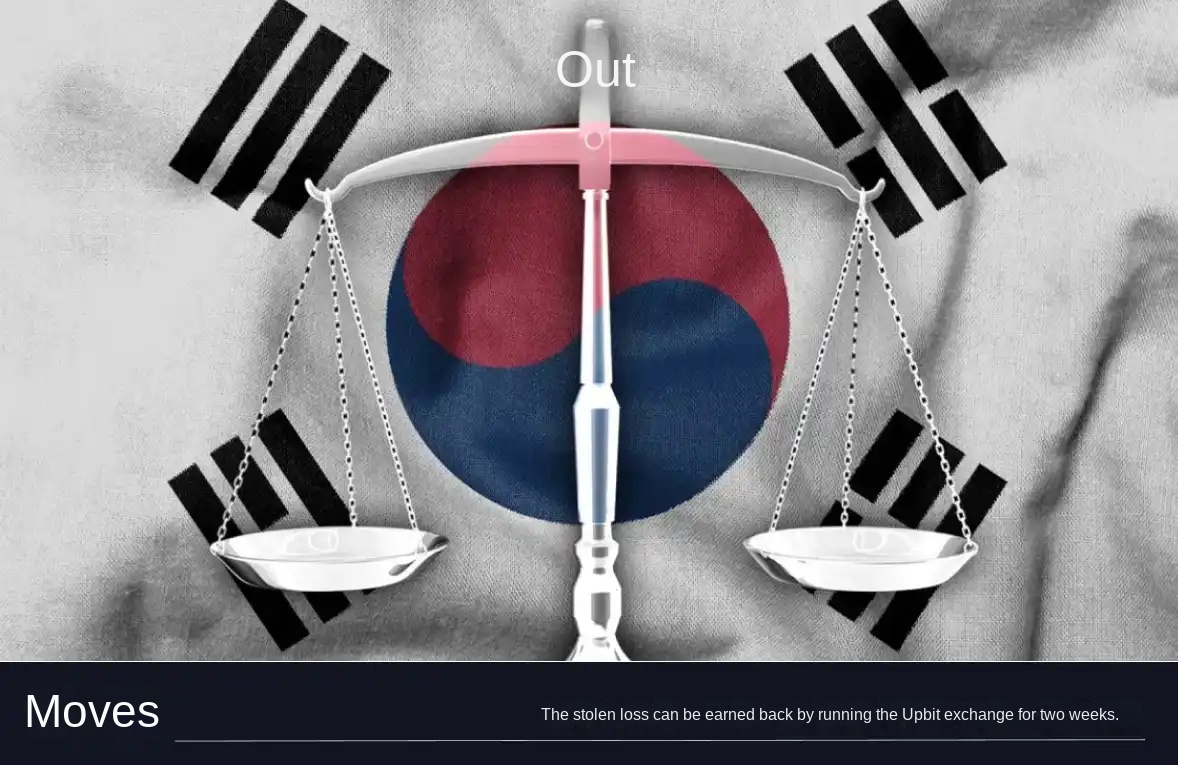Can the 40 Billion Bitcoins Taken by Qian Zhimin Be Returned to China?
Original Title: "Can the 40 Billion Bitcoin Taken Away by Qian Zhimin be Returned to China?"
Original Source: China Newsweek
"Qian Zhimin," a name Ge Qiu has not seen for several years, the discussion surrounding this name and the Blue Sky Gemrig Investment case has gradually died down. It wasn't until the past two months that the nearly 400-person rights protection group she was part of became lively again, with everyone in the group sharing lawyer interpretations and various videos about the progress of the case.
On November 11th local time, Qian Zhimin, the mastermind of the large-scale illegal fundraising case of Blue Sky Gemrig in Tianjin, China, and the largest Bitcoin money laundering case in British history, was sentenced to 11 years and 8 months in prison in the UK. With the conclusion of the criminal part of the case, public attention has shifted to cross-border recovery.
In this case, the UK police have frozen 61,000 Bitcoins, and according to UK judicial documents, these Bitcoins were mainly purchased with the proceeds of Qian Zhimin's criminal activities in China. As planned, the UK Supreme Court was supposed to hold a hearing again on November 17th to discuss the disposal decision of the 61,000 Bitcoins, but it was later announced that it would be postponed until January 2026.
A lawyer who has participated in Qian Zhimin's trial multiple times told China Newsweek that the UK court is currently conducting both criminal proceedings and civil recovery proceedings simultaneously. The participants and the trial court for these two proceedings are different, and some criminal evidence may be used in civil recovery proceedings. It will take some time for the participants and the trial court in the civil recovery proceedings to become familiar with this evidence, hence the postponement of the hearing is understandable.
Due to the surge in Bitcoin prices, the market value of the involved Bitcoins once approached 50 billion RMB. Whether the victims can expect full compensation, or even experience a "reverse gain" due to the increase in coin value, and who should enjoy the appreciation, has become one of the focal points of the case.
Yan Lixin, professor at the International School of Finance at Fudan University and executive director of the China Anti-Money Laundering Research Center at Fudan University, told China Newsweek that this Bitcoin money laundering case is not only an "epic" case in the field of digital currency anti-money laundering but also a complex legal, diplomatic, and geopolitical game concerning the struggle for "ownership" and "jurisdiction." He stated, "Our core demand is very clear—to return the stolen property, that is, to return it to Chinese victims."

Image/Vision China
More Than 61,000 Bitcoins
Looking back on these seven or eight years, Zheng Zhengge described it as a time of "sinking all his savings and his family breaking apart." In 2016, through a friend's introduction, this modest-income teacher came into contact with an investment project called "Blue Sky Gridwise."
At that time, Blue Sky Gridwise claimed to be partnering with the local government to carry out a retirement project and portrayed smart retirement as a future development trend. Zheng Zhengge didn't believe in private enterprises, but the idea of "government cooperation" made him let down his guard. In order to board this wealth train, he maxed out his credit cards, took out a loan against his salary, and invested over one million RMB.
The myth shattered unexpectedly. For these years, he has been struggling in the quagmire of debt repayment, and to this day, he still has over one hundred thousand RMB in debt unpaid. At the most desperate moment, due to loan defaults, he was blacklisted by the credit bureau, and his salary card was frozen for three to four years. As a teacher, he taught classes on time but couldn't receive his salary, while his children at home were waiting for money to go to college.
On the other hand, Qian Zhimin, who was reaping the benefits from "investors," had his "front man" start creating an account on the cryptocurrency exchange platform Huobi in June 2014, systematically converting investor funds into crypto assets. The detailed judgment of the UK Supreme Court reveals this process.
2017. In September, when Qian Zhimin arrived in the UK, he had about 70,000 bitcoins worth £305 million. In October 2018, London police searched his residence in Hampstead for the first time, finding an additional £163,000 in cash and identifying activities of transferring and converting over 18,800 bitcoins, gradually tracing around 61,000 bitcoins.
As reported by "China Newsweek" earlier, a special audit showed that from August 2014 to July 2017, Blue Sky Gridwise raised over 40.2 billion RMB, all of which were controlled by Qian Zhimin. From April 2014 to August 2017, Blue Sky Gridwise refunded over 34.1 billion RMB to 128,409 people, and another 1.14 billion RMB was used to purchase bitcoins.
Media reports obtained files from UK courts, showing that Qian Zhimin bought a total of 194,951 bitcoins, higher than the 61,000 bitcoins the police identified. However, the court did not disclose the situation of the remaining over 120,000 bitcoins. This also means that in Qian Zhimin's assets, there are likely bitcoins that have not been found or confiscated. In an interview with British media, Detective Joe Lane of the London Police Department revealed that Qian Zhimin claimed to have "lost the password" to a wallet containing 20,000 bitcoins. At the current exchange rate, these "lost" bitcoins alone are worth about 12.5 billion RMB.
The UK Supreme Court showed particular sympathy for these "investors." On November 11, 2025, during the sentencing remarks for Qian Zhimin, British Judge Sally-Anne Hales highlighted that while the currently recovered funds were sufficient to repay the investors, this did not erase the true harm suffered by the victims beyond money: "Some lost their homes, suffered physical and mental health issues, relationships and marriages broke down, and 'shame' became a recurring universal feeling."
The court ruled that due to Qian Zhimin's role in the crime, a sentencing adjustment was necessary to increase the sentence from the prescribed 10 years. After considering all factors, his final sentence was determined to be 11 years and 8 months.
Qian Zhimin, who had been arrested in the UK since April 2024, repeatedly claimed innocence. However, he pleaded guilty on the first day of the trial, leading to speculation that it was highly likely that the UK had received evidence assistance from Chinese law enforcement agencies.
On October 30, 2025, the Hedong Branch of the Tianjin Public Security Bureau issued a situation report stating that Tianjin's public security organs had deeply engaged in international extradition and asset recovery cooperation with UK law enforcement agencies through channels of international law enforcement and judicial cooperation, making every effort to recover the losses of the participants in the fundraising.
In addition, the Blue Sky Gerrit Case Refund Working Group of the Hedong District Finance Bureau in Tianjin also issued a public notice, reminding participants in the Blue Sky Gerrit Case who had not registered for confirmation to verify and confirm their participation, with a deadline from October 31, 2025, to December 29, 2025. The announcement stated, "The verification and confirmation in this round will serve as the basis for the refund of funds, and relevant participants are requested to verify and confirm within the specified period in the announcement."
"The highlight of this case is the breakthrough in 'intelligence exchange' and 'evidence recognition.' Despite no extradition, the British police acknowledged the basic facts provided by the Chinese police regarding the upstream fraudulent crime, which was extremely challenging," as pointed out by Yan Lixin to the "China Newsweek."
The head of the Economic and Cybercrime Command of the London Police Department also stated that Qian Zhimin's conviction marked the "result of years of joint efforts between (UK) police and Chinese law enforcement."

The office location of the Blue Sky Gerrit Company in the Fujian Building in Tianjin's Hedong District has been sealed. Photo by/Our Reporter Liu Xiangnan
Proof That the Money is Tainted
Several interviewees recounted to "China Newsweek" that between 2021 and 2022, the Tianjin Public Security Bureau had conducted two rounds of refunds for registered victims, with percentages of 5% and 8%. Zheng Zhengge said, "For those who invested tens of millions, this was merely a drop in the bucket."
In November 2021, Wu Xiaolong, General Manager of Blue Sky Grid, stood trial, with his personal involved amount determined to be 8.7 billion RMB, and his enforceable assets totaling 9.56 million RMB, only one-thousandth of the amount to be recovered.
Across the ocean, in the UK, a Property Freezing Order has been issued under the Proceeds of Crime Act for the freezing of 61,000 Bitcoins. Due to a market surge, these frozen assets are now valued at over 5 billion GBP. In September 2024, the UK's Crown Prosecution Service formally initiated civil recovery proceedings under the 2002 Proceeds of Crime Act (POCA) and released a "Victim Notice Regarding the Blue Sky Grid Fraud Case" to explain the recovery process.
In theory, under Section 281 of POCA, the claims process leaves a narrow window for the "investors" attempting to seek justice. Investors can apply to the UK Supreme Court to assert their legitimate claims to their assets.
On October 15, 2025, the UK's Crown Prosecution Service also proposed during an interim hearing the consideration of establishing a "Compensation Plan" for Chinese victims who did not participate in the civil proceedings. The plan is currently pending court approval. When reached out by China Newsweek for specific details, as of the publication deadline, no valid response was received.
According to the UK government's Asset Recovery Statistics publication, the Home Office will share the confiscated assets with the requesting country, typically in a 50% sharing ratio. In specific victim-related cases, the UK may decide on different ratios through negotiations.
Professor Zhu Jiangnan from the Department of Politics and Public Administration at the University of Hong Kong pointed out to China Newsweek that under the Sino-British criminal judicial assistance treaty, when the requested party confiscates public funds from the requesting party resulting from embezzlement or misappropriation, regardless of whether the funds have been laundered, the requested party should return the confiscated assets or the proceeds from their sale back to the requesting party, deducting reasonable realization costs. For economic fraud cases involving non-public funds like the Qian Zhimin case, the treaty specifies applicable scenarios, and the specific return conditions still need to be determined through judicial procedures, based on evidence chains, trials, diplomatic negotiations, and discussions, without a clear unified ratio.
Once it is ultimately determined how much funds will go to the UK, the distribution of interests among different domestic departments in the UK will also vary. Zhu Jiangnan said that the UK's Asset Recovery Incentivisation Scheme (ARIS) clearly states that in a 50:50 ratio, the recovered assets will be evenly split between the central government and various law enforcement agencies to incentivize further crime crackdowns. "In the Qian Zhimin case, the extremely high enthusiasm shown by the police and prosecution, aside from professional dedication and performance considerations, can hardly be said to be without the drive of this incentive mechanism," analyzed Zhu Jiangnan.
In response to an inquiry from "China Newsweek" regarding asset disposal, the London Metropolitan Police also clearly stated: the police hope to see part of the recovered assets "flowing to London and Londoners." For the UK police, who have spent seven years investigating this case, it is undoubtedly seen as a funding recovery channel to cover the costs of the investigation.
"Faced with huge interests, any institution may be a 'rational economic actor.' The ARIS mechanism has turned law enforcement into a business, and what we have to do is to prove that this money is tainted 'dirty money,' not ownerless 'profits,'" said Yan Lixin to "China Newsweek."
The disconnection of "the case is abroad, but the victims are at home" is the biggest challenge in cross-border asset recovery. Several experts have emphasized the need to demonstrate a "victim-centric" principle and stance in case negotiations. Yan Lixin said that according to the United Nations Convention against Corruption (UNCAC) and the United Nations Convention against Transnational Organized Crime (UNTOC), returning assets to the rightful owners is the top priority. "Only after compensating all victims, if any surplus remains, will it be the turn of China and the UK to discuss sharing."
Zhao Binghao, Dean of the Institute of Financial Technology and Rule of Law at the China University of Political Science and Law, told "China Newsweek" that China may accept the UK deducting "reasonable law enforcement costs," but it needs to prevent automatically falling into a pattern of defaulting to returning 50% or a lower percentage.
Previously, the UK Supreme Court emphasized that unless at the stage provided for in Section 281 of POCA, where an individual or entity asserts a right, there will be no intergovernmental contact. In other words, the UK will first determine asset ownership through its domestic judicial process before considering negotiations with China on asset return.
This behavior has sparked controversy. Roger Sahota, lawyer for Zhu Qianmin, stated, "The actions of the UK courts mean that any surplus from asset recovery may be retained by the state, effectively turning law enforcement into a potential new source of government revenue."
How Much Can Be Returned?
For the victims of this case, the most hoped-for outcome is "full return." This model is not without precedent.
Zhu Jiangnan referred to a milestone case in China's pursuit of fugitives and assets — the case of Li Huabo, former section chief of the Economic Construction Section of the Finance Bureau of Poyang County, Jiangxi Province. In 2015, although China and Singapore had not concluded a bilateral judicial assistance treaty, through cooperation between China and Singapore, the High Court of Singapore enforced the confiscation ruling of the Chinese court, returning the full amount of RMB 20.4464 million in illicit funds related to the case of Li Huabo to China. This was the first case where Chinese procuratorial authorities used the illegal proceeds confiscation process to recover the illicit gains of overseas fugitive corrupt officials.
Yan Lixin suggested that a comparably feasible path would be for the Chinese government or a designated asset manager to represent all victims and bring a civil lawsuit in a UK court or as part of a criminal ancillary civil action. "This is not only a legal and technical issue but also a social governance issue. The government's involvement can maximize appeasing the emotions of domestic victims while demonstrating the country's will in international courts."
Shanghai Duan and Duan Law Firm is one of the law firms involved in representing overseas cross-border recovery of losses for victims of the Blue Sky Crayfish non-profit investment case. Gu Zhaoqin, a lawyer at the firm's Hongqiao office, told "China Newsweek" that the UK prosecutor's civil recovery process is still in its early stages, substantive evidence exchange has not yet begun, and the entire process will be relatively lengthy.
Previously, Yang Yuhua, a partner at the UK Junchi Law Firm, pointed out in an article that more than a thousand Chinese investors have attempted to assert their rights through this process, with many making "radical" claims: not only demanding reimbursement of the principal but also seeking the Bitcoin's appreciation gains over the past seven years.
Yan Lixin believes that if Chinese victims claim compensation based on the post-appreciation value, they may face questioning by UK judges for "unjust enrichment." "However, the 'traceability principle' in the anti-money laundering field tells us that if a victim's money is used to buy a lottery ticket that wins a big prize, the victim has the right to claim the prize, not just the ticket's original cost."
Zhao Binghao also agrees with this logic. He said that civil recovery focuses on whether the asset itself is the representative of an unlawful gain. In principle, as long as the victim can prove that the money they were originally deceived of has grown into the fruit of virtual currency along the chain, they have the right to claim compensation based on the present value. However, the complete realization of the amount depends on whether the on-chain funds can be fully traced, how the allocation is made among different victims, and the court's acceptance of the evidence chain.
However, Yu Jianing, Co-Chair of the Blockchain Special Committee of the China Communications Industry Association, expressed a contrasting view to "China Newsweek." He believes that the substantial appreciation of 61,000 bitcoins over seven years is typical capital gains, stemming from Bitcoin's market increase. Allowing victims to assert their rights based on the current market value of Bitcoin would be acknowledging an investment return brought about by the appreciation of virtual currency in a fund structure that is inherently illegal, "which not only conflicts with the criminal law's negative assessment of illegal fundraising but also creates a reverse incentive in ethics that 'success equals high returns, and failure is for victims.'"
He pointed out that referring to domestic precedents such as the PlusToken case, Chinese courts have uniformly recognized the full value of virtual currency, including the appreciation-formed portion, as illegal gains, not based on cost or purchase price. For this significantly higher-than-the-total-principal amount appreciation, it "is more suitable to be understood as a public surplus value." The Chinese side should advocate through diplomatic and judicial means for this substantial premium to be treated as an inseparable part of the crime asset package, recovered, and included in China's national treasury. After completing the refund of victims' principal, the remaining substantial fund is converted into a public fiscal resource.
Technical Attribution Challenge
Furthermore, technical evidence attribution poses an even more challenging problem.
Yuan Jianing mentioned that for an ordinary investor, trying to trace back the Chinese yuan they "invested" years ago to the 61,000 bitcoins currently seized by the UK police is almost an impossible task from a technical standpoint. The reason is that this path traverses three fundamentally disjointed systems: the first being the bank account and cash seizure system mainly denominated in Chinese yuan, the second being the over-the-counter (OTC) off-exchange coin swap market heavily reliant on personal connections and WeChat group matchmaking, and the third being the on-chain fund flow deliberately obfuscated by cold wallets, multi-hop transactions, and coin mixers.
Qian Zhimin systematically converted investor funds into crypto assets from 2014 to 2017. In Yuan Jianing's view, this period was a typical era of off-exchange coin swaps, large-scale purchases, extensive fund mixing, complemented by coin mixers. At the moment the funds entered the large pool, their individual traceability was already lost. What blockchain analysis can reconstruct is not "whose droplet is this" but rather "this pool of water is dirty." From the point the funds arrive at the ground promoters or fund pools, they are funneled into a massive black box, and individuals completely lose sight of which money exchanged for which coin.
Moreover, in the Blue Sky Gridlock case, a significant number of investors were involved in multiple project roll-up investments. A lawyer who has extensively studied this case told China Newsweek that in this case, principal amounts, profits, and reinvestments were all mixed together. Different products had varying cashback methods—some rolled in cash, some converted back into "multi-coins" or other physical equivalents for reinvestment—resulting in a discrepancy between the recorded amount and actual losses. "At this stage, whether in China or the UK, there is a lack of professional expertise capable of fully and credibly reconstructing the entire fund flow, bitcoin conversion process, and corresponding ownership relationships."
Faced with high legal barriers and recovery costs, Zheng Zhengge ultimately chose a third-party institution facilitated by a multinational corporation to assist in seeking justice, although the compensation promised by the other party may be as high as 20%. He simply hopes to quickly recover the principal and does not dare to expect the profit portion.
Additionally, Zhao Binghao suggested that some international judicial institutions might use the current contradictions in China's regulatory and judicial practices to challenge China. "Regarding regulation, the issuance and financing of bitcoins are illegal. However, in the litigation process, we treat virtual currency as property, placing us in a somewhat awkward position."
In response, Yuan Jianing believes that although China denies the currency attributes of bitcoin, the Civil Code explicitly protects its rights as "network virtual property." This precisely provides a solid legal basis for cross-border asset recovery.
Yan Lixin provided a sharper analogy from a "penetrative utilitarian" perspective, stating, "Our 'internal ban' is to prevent financial risks, while our 'external claims' are to uphold judicial justice. These two are not contradictory, just like cleaning up your home by closing the door does not mean others can take whatever is left outside."
“This case is not only a pursuit of stolen assets but also an opportunity. It forces China to advance its regulation of virtual currency from ‘emphasizing only risks and prohibition’ to ‘risk prevention, rule-based governance, and international alignment.’ Only in this way can China have sufficient discourse power and institutional confidence in future cross-border asset recovery and sharing negotiations,” said Zhao Binghao.
(Zheng Zhengge and Ge Qiu are pseudonyms in the article)
Welcome to join the official BlockBeats community:
Telegram Subscription Group: https://t.me/theblockbeats
Telegram Discussion Group: https://t.me/BlockBeats_App
Official Twitter Account: https://twitter.com/BlockBeatsAsia










